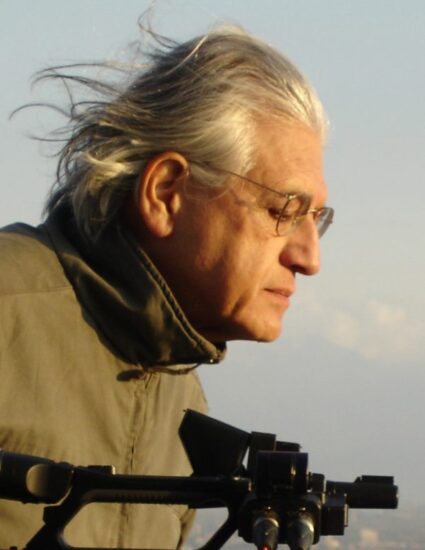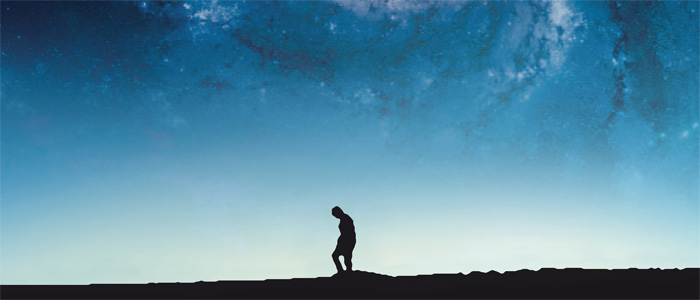
Series explores the political documentaries of Chilean filmmaker Patricio Guzmán
PATRICIO GUZMÁN, DREAMING OF UTOPIA: 50 YEARS OF REVOLUTIONARY HOPE AND MEMORY
Anthology Film Archives, Brooklyn Academy of Music (BAM), IFC Center
September 7—15
www.cinematropical.com
www.patricioguzman.com
“A country without documentary cinema is like a family without a photo album,” Chilean filmmaker Patricio Guzmán has said. In conjunction with the fiftieth anniversary of General Augusto Pinochet’s coup d’état on September 11, 1973, when the military overthrew the government of democratically elected Chilean president Salvador Allende, Icarus Films and Cinema Tropical are presenting “Patricio Guzmán, Dreaming of Utopia: 50 Years of Revolutionary Hope and Memory,” consisting of nine works by the award-winning eighty-two-year-old Santiago-born, France-based director. Screening at Anthology Film Archives, BAM, and IFC Center, the festival opens September 7-10 at Anthology with 2004’s Salvador Allende, followed September 8-15 by the US premiere of a new restoration of 1972’s The First Year, which documents Allende’s initial twelve months as president, with the 6:45 show of the latter on September 8 followed by a Q&A with Chilean artist Cecilia Vicuña and Lehigh University professor of art history Florencia San Martín and a reception.
BAM highlights Guzmán’s three-part The Battle of Chile September 8-14, with filmmakers Pamela Yates, Paco de Onís, and Bernardita Llanos participating in a conversation after the 5:15 screening of part three on September 9 at 5:15. And on September 13-14, IFC screens Guzmán’s Chile Trilogy, consisting of 2010’s Nostalgia for the Light, 2015’s The Pearl Button, and 2019’s The Cordillera of Dreams, along with his latest film, 2022’s My Imaginary Country, about recent social unrest and protests. “A piano sonata cannot be heard in a large room. Documentary works need a different framework, a space and an intelligent programming formula,” Guzmán told Uruguayan critic Jorge Ruffinelli for a 2001 book. That’s just what Icarus Films and Cinema Tropical have given us with “Dreaming of Utopia.”
NOSTALGIA FOR THE LIGHT (NOSTALGIA DE LA LUZ) (Patricio Guzmán, 2010)
IFC Center
323 Sixth Ave.
Wednesday, September 13, 6:30
www.ifccenter.com
www.nostalgiaforthelight.com
Master documentarian Patricio Guzmán’s Nostalgia for the Light is a brilliant examination of memory and the past, one of the most intelligent and intellectual films you’re ever likely to see. But don’t let that scare you off — it is also a vastly entertaining, deeply emotional work that will blow you away with its stunning visuals and heartbreaking stories. Guzmán, who chronicled the assassination of Salvador Allende and the rise of Augusto Pinochet in the landmark three-part political documentary The Battle of Chile, this time visits the Atacama Desert in his native Chile, considered to be the driest place on Earth. Situated ten thousand feet above sea level, the desert is home to La Silla and Paranal Observatories, where astronomers come from all over the world to get unobstructed views of the stars and galaxies, unimpeded by pollution or electronic interference. However, it is also a place where women still desperately search for the remains of their loved ones murdered by Pinochet’s military regime and hidden away in mass graves. In addition, archaeologists have discovered mummies and other fossilized bones dating from pre-Columbian times there. Guzmán seamlessly weaves together these three journeys into the past — as astronomers such as Gaspar Galaz and Luis Hernandez note, by the time they see stars either with the naked eye or through the lens of their massive telescopes, the celestial bodies have been long dead — creating a fascinating narrative that is as thrilling as it is breathtaking.
Constructing a riveting tale of memory, Guzmán speaks with architect Miguel Lawner, who draws detailed maps of the Chacabuca desert concentration camp where he and so many other political prisoners were held; Valentina, a young astronomer whose grandparents had to give up her parents in order to save her when she was a baby; archaeologist Lautaro Nunez, who digs up mummies while trying to help the women find “los desaparecidos”; and Victoria and Violeta, who regularly comb the barren landscape in search of their relatives. “I wish the telescopes didn’t just look into the sky but could also see through the earth so that we could find them,” Violeta says at one point. Spectacularly photographed by Katell Dijan, Nostalgia for the Light is a modern masterpiece, an unparalleled cinematic experience that has to be seen to be believed. The screening will be introduced by San Francisco State University School of Cinema assistant professor Elizabeth Ramírez Soto, author of (Un)veiling Bodies: A Trajectory of Chilean Post-dictatorship Documentary.
[Mark Rifkin is a Brooklyn-born, Manhattan-based writer and editor; you can follow him on Substack here.]
